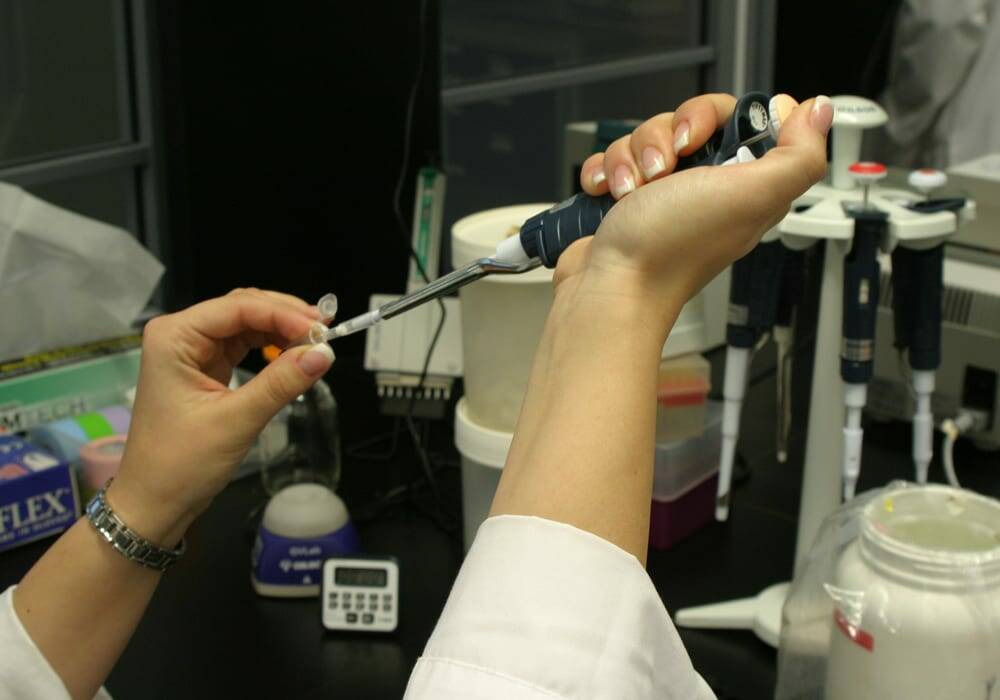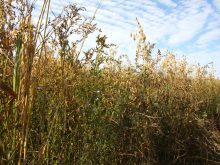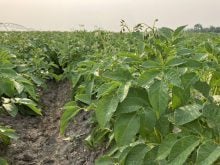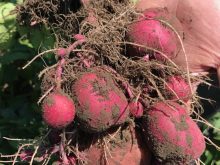Mancozeb is on the regulatory chopping block.
Now Manitoba potato producers are being urged to share how they use the chemical as their industry attempts to preserve it as an aerial fungicide, and they have just days to do it.
Why it matters: Health Canada has proposed a ban on mancozeb for potatoes and other horticultural crops. Meanwhile, Manitoba potato producers argue that the ban will eliminate an aerial fungicide tool in a province very reliant on aerial application.
Read Also

Ship’s turning for gene-edited crops
More and more countries have decided that gene-edited crops will be treated the same as conventional plant breeding.
The Canadian Horticultural Society has released a grower survey detailing farm mancozeb use such as number of applications, rates or the pathogen being targeted.
“Right now, they make assumptions based on the highest rate in all the applications to understand how the environment and worker safety is being affected, but if they’re able to find out better data on what is actually happening, then we might be able to keep some of these products,” Darin Gibson, president and research agronomist at Gaia Consulting said.
He said it’s likely less of the product is getting into the environment than regulators are assuming.
The federal proposal would cancel mancozeb for all uses outside of greenhouse-grown tobacco.
Health Canada updated the PMRA’s proposed changes for mancozeb Oct. 5, launching a 90-day consultation period. The government later granted the Canadian Horticultural Society and Canadian Potato Council an extra 60 days to gather data from horticultural producers, including the potato industry.
“Environmental risks to birds and small wild mammals were identified for foliar sprays of mancozeb on all crops and were not found to be acceptable,” the federal proposal states. “Therefore, all foliar applications are proposed for cancellation.”
The scientific review found post-application risks for workers were acceptable for most agricultural use, but cited unacceptable hazards for those handling mancozeb during potato seed piece treatment, as well as seed treatments for barley, corn, flax, oat and wheat, with the exception of on-farm slurry application.
The survey is of particular interest to Manitoba producers, Keystone Potato Producers manger Dan Sawatzky said during the Manitoba Potato Production Days in Brandon.
Manitoba is historically reliant on aerial application, he said, and argued that local producers stand to be significantly impacted if aerial application of mancozeb is disallowed.
“Alberta is also an aerial province, but they don’t have nearly as much disease as us, and so they do not apply as many fungicide applications as we do,” Gibson said.
Only 135 producers had responded to the growers survey as of Jan. 25, 16 of which came from Manitoba.
Those numbers are not enough to paint a picture of grower use in Manitoba, Gibson said. Survey organizers are looking for more farmer participation.
The survey is available at www.surveymonkey.com/r/TWW76JJ until Feb. 8, 2019.
















